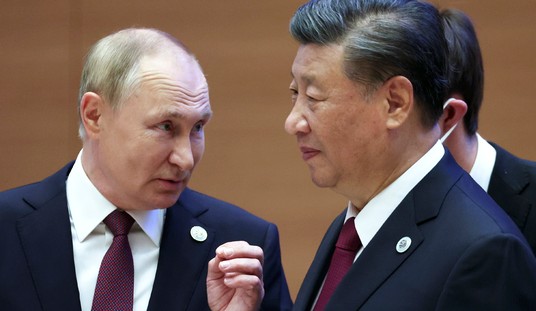Five GOP fiscal hardliners delivered a setback to Donald Trump and Speaker Mike Johnson on Friday when they voted against sending Trump's "Big, Beautiful Bill" to the floor of the House for a vote.
The vote was a setback for the bill, not a death blow. However, the objections by fiscal conservatives to how much the legislation is expected to add to the deficit and national debt spell trouble for the bill going forward. The bill would add more than $2.5 trillion to the $36.2 trillion national debt, according to the non-partisan Joint Committee on Taxation.
“This bill falls profoundly short. It does not do what we say it does with respect to deficits,” Rep. Chip Roy (R-Texas) said during the meeting. “The fact of the matter is, with respect to spending, what we’re dealing with here on tax cuts and spending is a massive front-loaded deficit increase. That’s the truth.”
As the bill has been written, Roy is correct. There just aren't enough budget cuts in the bill to convince Roy and his colleagues to support it. The only other option is to find more revenue. Raising taxes is not an option with Trump or Johnson, so for GOP committee chairmen, it's back to the drawing board to find more savings.
That's what's happening this weekend. Johnson hopes to reconvene the Budget Committee on Sunday night after striking several compromises with Roy and his colleagues. If they vote out a bill satisfactory to the budget hawks, Johnson can bring the bill to the floor for an eventual vote sometime before the Memorial Day recess, which begins on May 26.
Persistent disagreements between the furthest-right flank and moderates have plagued House Republicans’ budget negotiations since the last Congress. Fiscal hawks, many of whom are members of the Freedom Caucus, are demanding $2 trillion in federal spending cuts, the bulk of which would come from Medicaid and SNAP, the Supplemental Nutrition Assistance Program formerly known as food stamps.
Those cuts, though, would not take effect for several years, and the policies included carve-outs that would permit federal and state policymakers to slim down the cuts or opt out of them entirely.
Moderates, many of whom represent swing districts that helped House Republicans retain the majority last year, are more protective of those benefits.
In effect, the moderates are driving this bill. The budget hawks object to most of the concessions given to moderates, which delay many of the cost savings for several years.
Satisfy the budget hawks, and you probably lose some of the moderates. There's only one solution: Donald Trump is the only person who can solve this dilemma. And he needs to engage now.
“My assumption is Trump’s going to get involved — I don’t know what that looks like yet,” a senior GOP aide told Politico.
Trump, like all presidents, doesn't want to expend political capital on convincing congressmen to vote for a piece of legislation. This is a situation where he really doesn't have a choice.
Johnson is facing an impossible situation with GOP factions at each other's throats, willing to blow up the Big, Beautiful Bill over their own objections.
“You think the president likes being the president and the speaker’s babysitter?” as Ohio Rep. Max Miller, a former Trump aide, told NOTUS amid last month’s budget haggling.
White House press secretary Karoline Leavitt said as much in a stern statement issued shortly after the failed budget vote, betraying little patience for the antics from the handful of hard-right holdouts: “The White House expects ALL Republicans to vote for this bill and successfully pass it through Committee in the near future.”
To be fair to Johnson, he’s dealing with a historically small House majority and a staggeringly complex piece of legislation. Just about any time he tries to assuage conservatives who are ideologically closer to the House GOP’s center of gravity, he repels moderates who gave Republicans their majority, and vice versa. Furthermore, presidents have always served as dealmakers of last resort in any tricky Hill negotiation
Clearly, Trump is going to have to expend some political capital to get his bill through Congress. He'd better save a good deal of it because the Senate is going to be an even tougher nut to crack.










